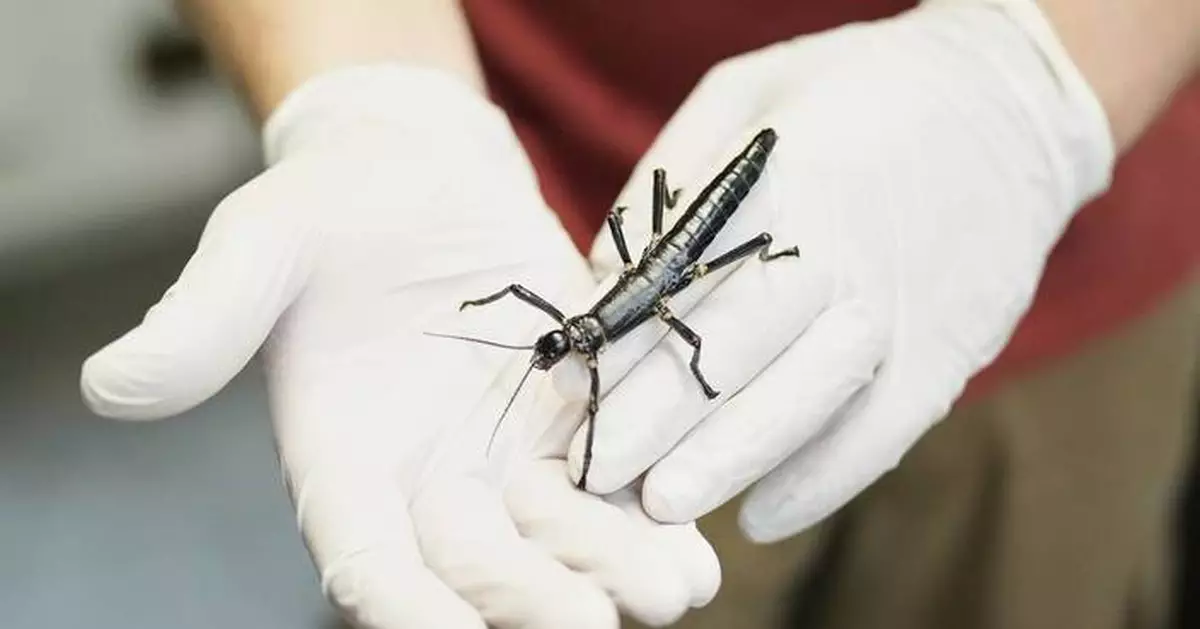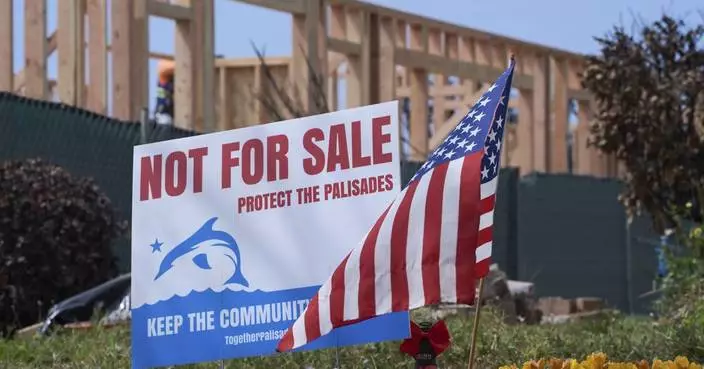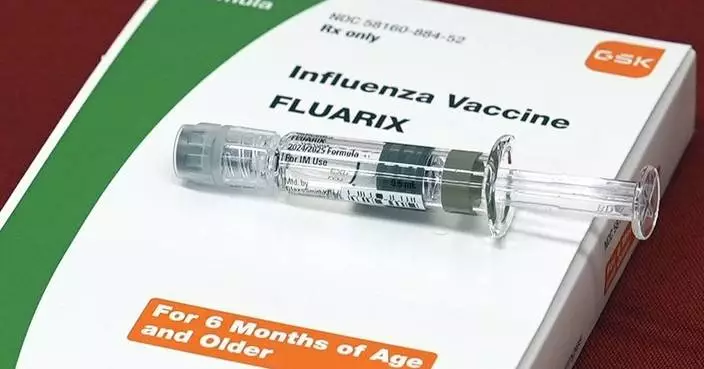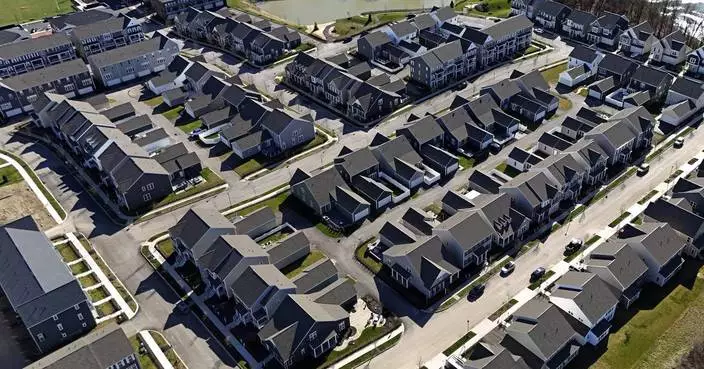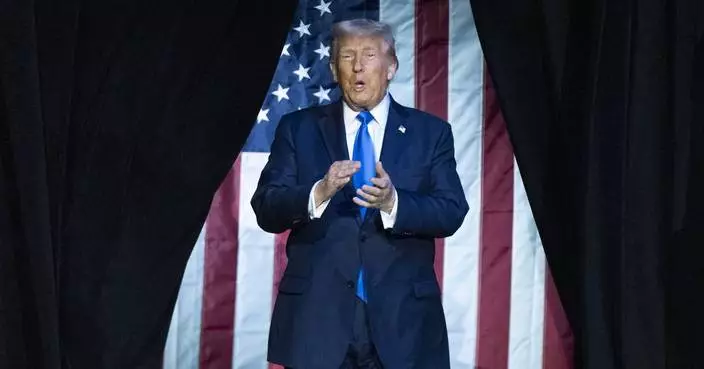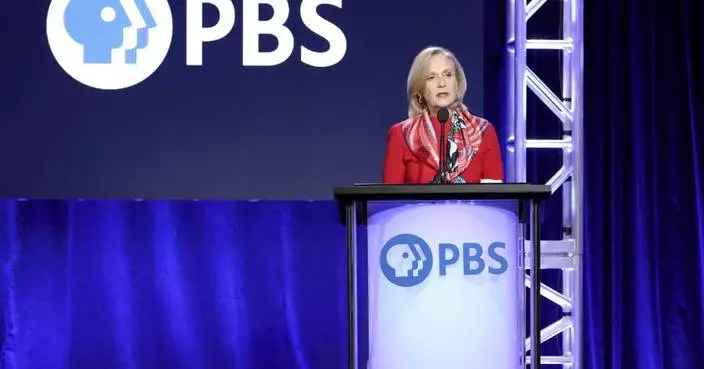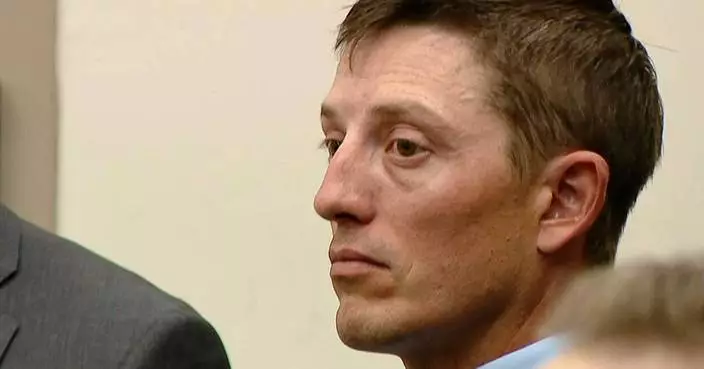PRAGUE (AP) — The Prague Zoo has joined an international effort to ensure the survival of a rare insect that had been considered extinct for more than 80 years.
The zoo is among six institutions around the world that have been able to create living conditions for the largest species of flightless insect, the Lord Howe Island stick insect, which grows up to 15 centimeters (5.9 inches) long. They are on display, a rare chance that only London and San Diego also offer.
Click to Gallery
An expert keeper holds a box with critically endangered Lord Howe Island stick insects, nicknamed "tree lobster," at the zoo in Prague, Czech Republic, Tuesday, April 8, 2025. (AP Photo/Petr David Josek)
An expert keeper displays a critically endangered Lord Howe Island stick insect, nicknamed "tree lobster," at the zoo in Prague, Czech Republic, Tuesday, April 8, 2025. (AP Photo/Petr David Josek)
An expert keeper displays a critically endangered Lord Howe Island stick insect, nicknamed "tree lobster," at the zoo in Prague, Czech Republic, Tuesday, April 8, 2025. (AP Photo/Petr David Josek)
An expert keeper displays critically endangered Lord Howe Island stick insects, nicknamed "tree lobster," at the zoo in Prague, Czech Republic, Tuesday, April 8, 2025. (AP Photo/Petr David Josek)
An expert keeper displays a critically endangered Lord Howe Island stick insect, nicknamed "tree lobster," at the zoo in Prague, Czech Republic, Tuesday, April 8, 2025. (AP Photo/Petr David Josek)
An expert keeper displays a critically endangered Lord Howe Island stick insect, nicknamed "tree lobster," at the zoo in Prague, Czech Republic, Tuesday, April 8, 2025. (AP Photo/Petr David Josek)
The insect, also known as the Lord Howe Island phasmid, is native to a remote archipelago in the Tasman Sea off Australia.
The uninhabited archipelago was discovered in 1778. Rats that arrived with a ship stranded offshore in 1918 appeared to wipe out the insect's population.
Mountain climbers found signs of the insects in the 1960s on a rocky island 23 kilometers (14 miles) offshore from Lord Howe. In 2001, it was confirmed that specimens were surviving there. Two pairs were taken to Australia for breeding, a step considered necessary for the critically endangered species.
“They had to make an enormous effort to survive 100 years on such a tough place as the Balls Pyramid, and now need such sensitive care to live in captivity," Vojtěch Vít, an expert keeper at the Prague Zoo, said Tuesday.
The zoo had to create an air-conditioned building with disinfection equipment for keepers at the entrance to protect the insects that are susceptible to bacterial and virus infections, and get approval from Australian authorities for breeding.
The goal of the breeding program is to return the insect to its natural environment on Lord Howe Island after rats were eradicated there in 2019.

An expert keeper holds a box with critically endangered Lord Howe Island stick insects, nicknamed "tree lobster," at the zoo in Prague, Czech Republic, Tuesday, April 8, 2025. (AP Photo/Petr David Josek)
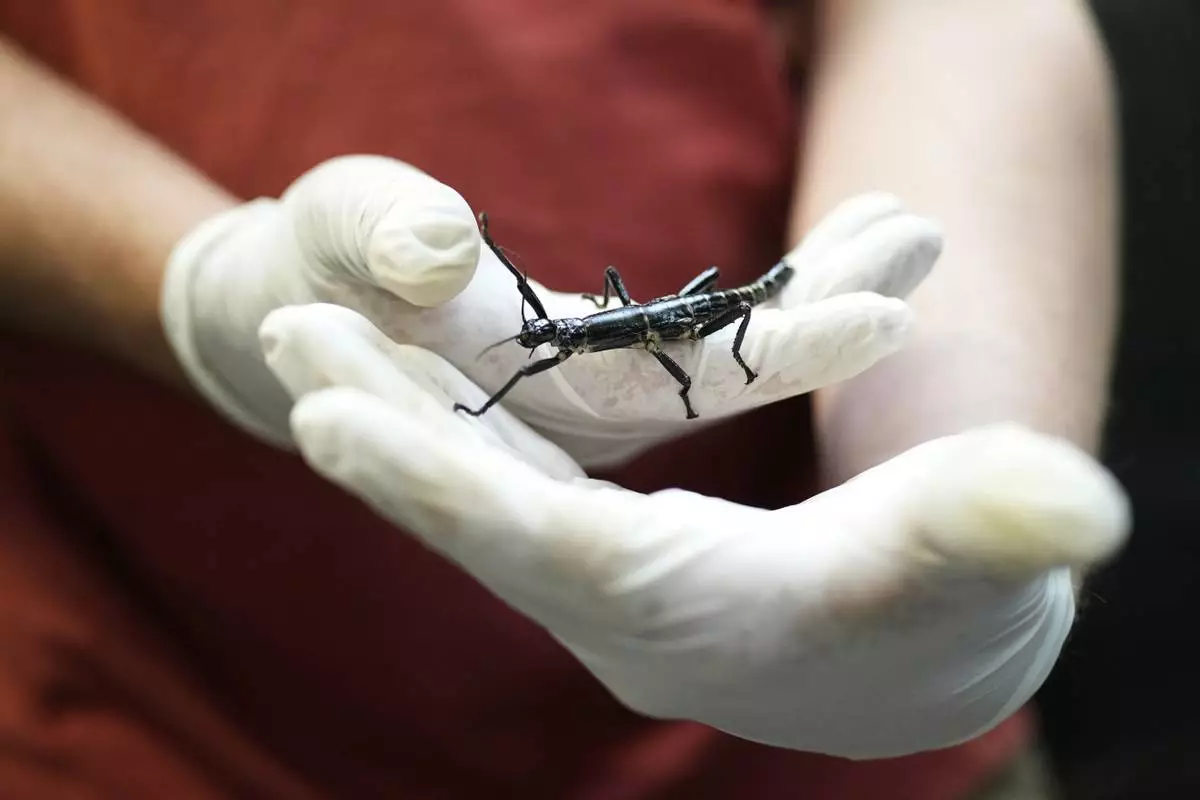
An expert keeper displays a critically endangered Lord Howe Island stick insect, nicknamed "tree lobster," at the zoo in Prague, Czech Republic, Tuesday, April 8, 2025. (AP Photo/Petr David Josek)
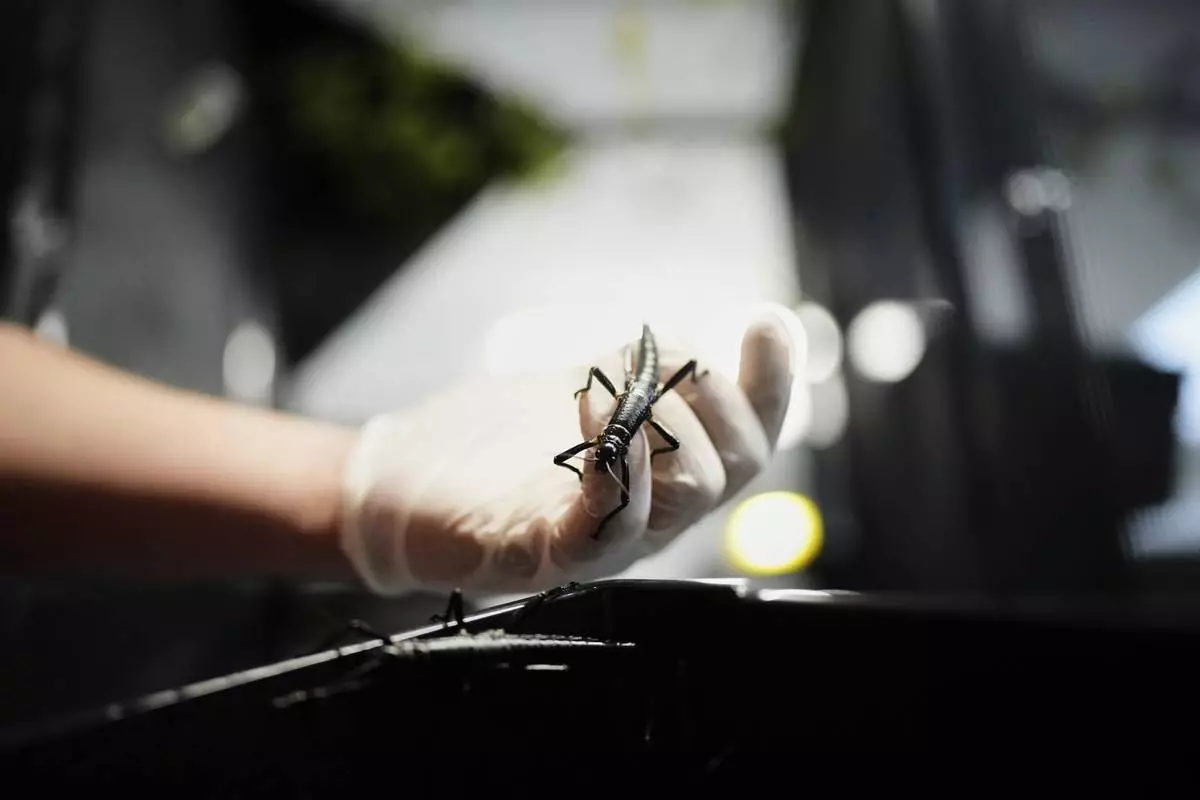
An expert keeper displays a critically endangered Lord Howe Island stick insect, nicknamed "tree lobster," at the zoo in Prague, Czech Republic, Tuesday, April 8, 2025. (AP Photo/Petr David Josek)
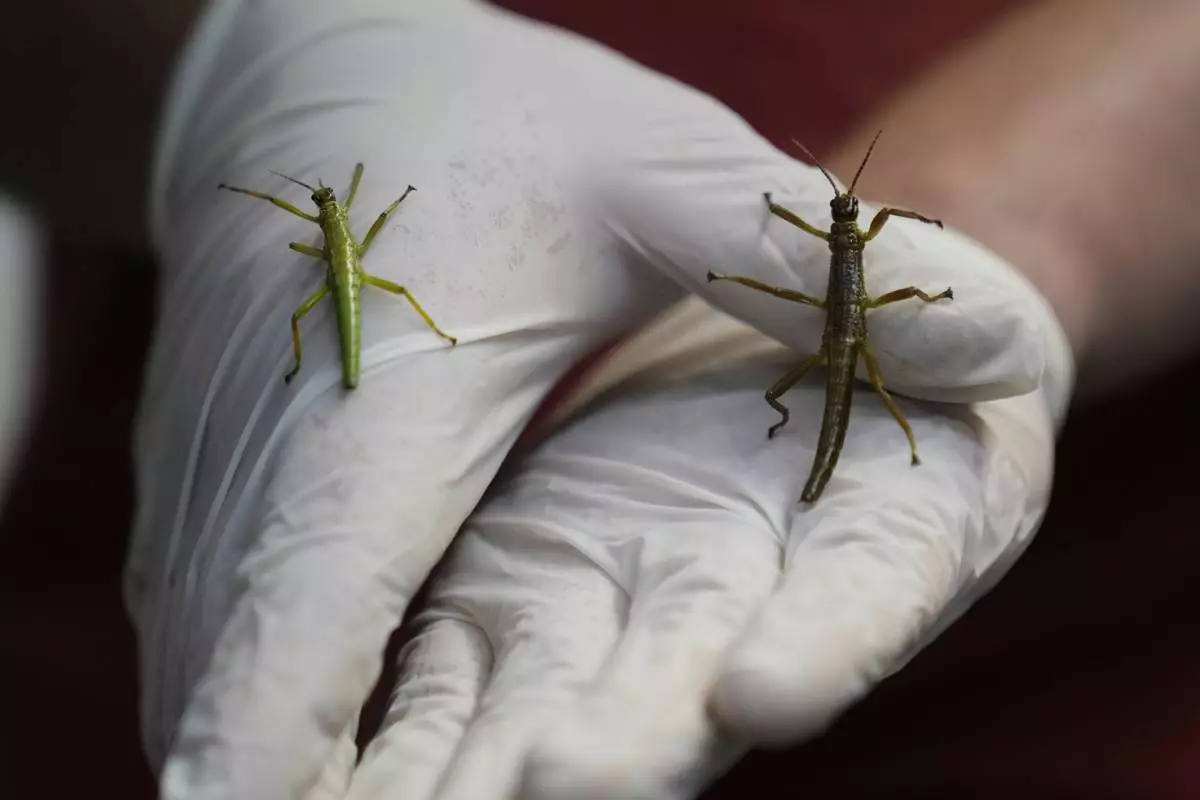
An expert keeper displays critically endangered Lord Howe Island stick insects, nicknamed "tree lobster," at the zoo in Prague, Czech Republic, Tuesday, April 8, 2025. (AP Photo/Petr David Josek)
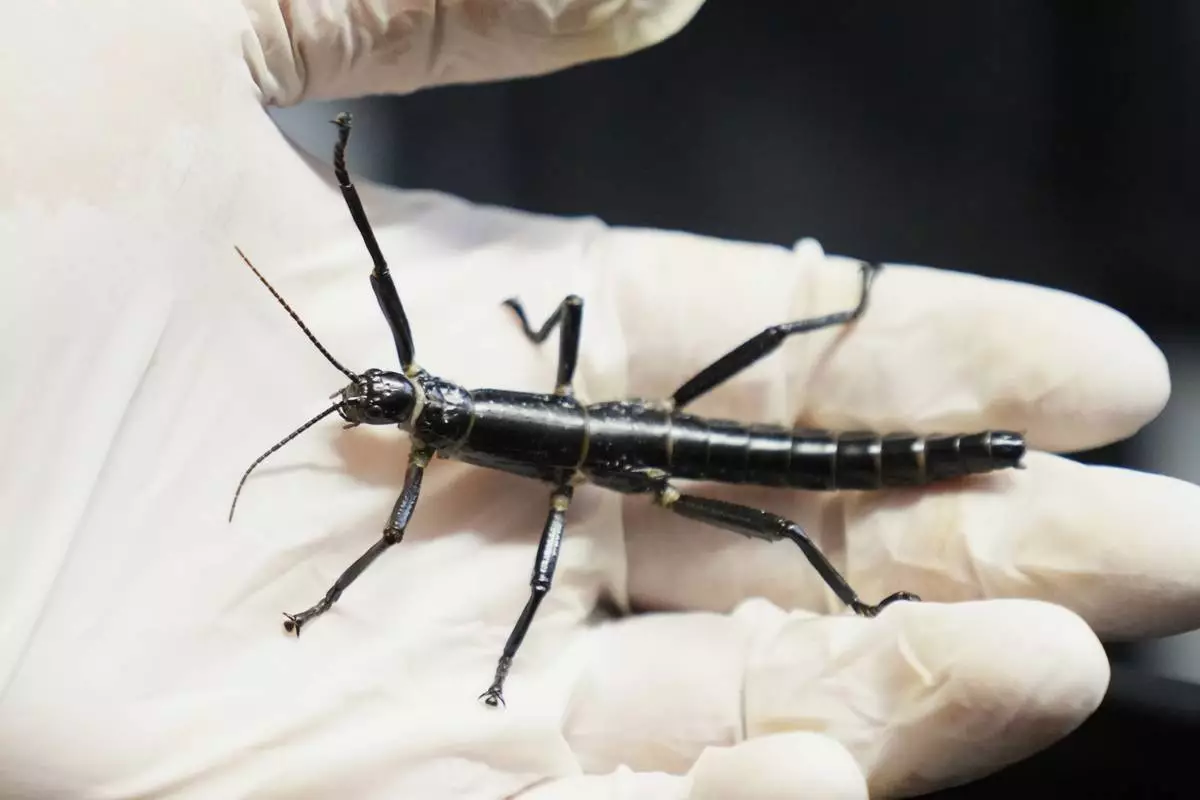
An expert keeper displays a critically endangered Lord Howe Island stick insect, nicknamed "tree lobster," at the zoo in Prague, Czech Republic, Tuesday, April 8, 2025. (AP Photo/Petr David Josek)
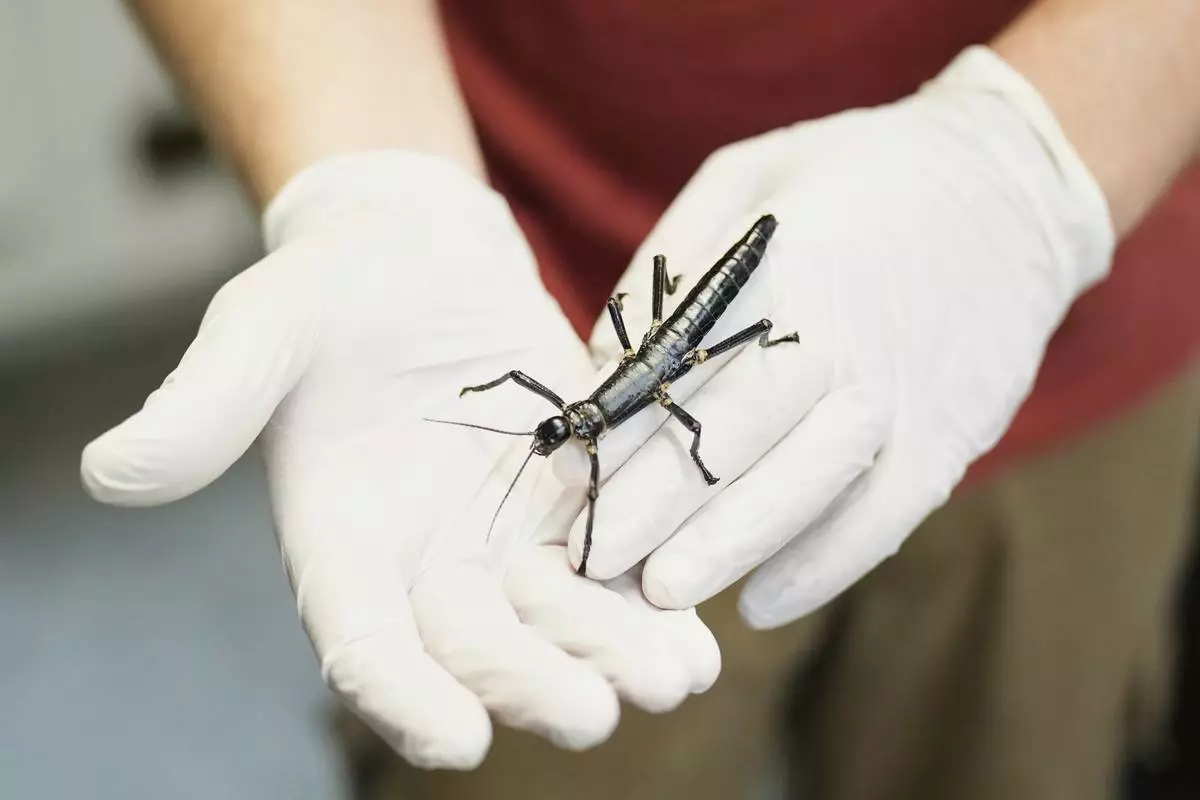
An expert keeper displays a critically endangered Lord Howe Island stick insect, nicknamed "tree lobster," at the zoo in Prague, Czech Republic, Tuesday, April 8, 2025. (AP Photo/Petr David Josek)
WASHINGTON (AP) — President Donald Trump's 2026 budget plan would slash non-defense domestic spending by $163 billion while increasing expenditures on national security, according to White House statements Friday.
The plan shows a desire to crack down on diversity programs and initiatives to address climate change. But it doesn't include details about what Trump wants on income taxes, tariffs, entitlement programs or the budget deficit — a sign of the challenge confronting the president when he's promising to cut taxes and repay the federal debt without doing major damage to economic growth.
Budgets do not become law but serve as a touchstone for the upcoming fiscal year debates. Often considered a statement of values, this first budget since Trump's return to the White House carries the added weight of defining the Republican president's second-term pursuits, alongside his party in Congress.
House Speaker Mike Johnson, R-La., said the plan showed fiscal discipline given the problems of persistently high budget deficits. The budget released on Friday did not, in fact, include a forecast on government borrowing.
“President Trump’s plan ensures every federal taxpayer dollar spent is used to serve the American people, not a bloated bureaucracy or partisan pet projects,” Johnson said.
Sen. Patty Murray, D-Wash., said the cuts could ultimately be more extreme than what the administration has proposed, noting that the budget doesn't provide funding levels for programs such as Head Start.
“President Trump has made his priorities clear as day: he wants to outright defund programs that help working Americans while he shovels massive tax breaks at billionaires like himself and raises taxes on middle-class Americans with his reckless tariffs," Murray said.
The budget seeks to cut discretionary spending by a total of 7.6% next year, but includes a 13% increase in national security spending.
The State Department and international programs would lose 84% of their money and receive $9.6 billion, a cut that reflects the existing efforts by adviser Elon Musk’s Department of Government Efficiency.
The Housing and Urban Development Department would get a $33.6 billion cut, while the Health and Human Service Department would receive $33.3 trillion less and the Education Department's spending would be reduced by $12 billion.
The Defense Department would get an additional $113.3 billion and Homeland Security would receive $42.3 billion more.
The IRS and FBI would lose money, while the Low Income Home Energy Assistance Program would be ended. There would be $980 million less for college students in work-study programs, as well as similarly sized cuts for adult education and instruction for learning English.
The Centers for Disease Control and Prevention would lose nearly $3.6 billion under the plan, while the National Institutes of Health would face a steep cut of almost $18 billion. The budget would eliminate more than $15 billion for infrastructure-related programs tied to climate change and $1.3 billion from the National Oceanic and Atmospheric Administration.
The White House budget plan arrives as Trump has unilaterally imposed what could hundreds of billions of dollars in tax increases in the form of tariffs, setting off a trade war that has consumers, CEOs and foreign leaders worried about a possible economic downturn.
The White House's Office of Management and Budget, headed by Russell Vought, a chief architect of Project 2025, provided contours of a so-called skinny version of topline numbers only regarding discretionary spending. Administration officials said a fuller budget will come soon with plans to address the drivers of the annual deficit.
The nation's estimated $7 trillion-plus federal budget has been growing steadily, with annual deficits fast approaching $2 trillion and the annual interest payments on the debt almost $1 trillion. That's thanks mostly to the spike in emergency COVID-19 pandemic spending, changes in the tax code that reduced revenues and the climbing costs of Medicare, Medicaid and other programs, largely to cover the nation's health needs as people age. The nation's debt load, at $36 trillion, is ballooning.
Democrats are prepared to assail Trump's budget as further evidence that the Republican administration is intent on gutting government programs that Americans depend on.
Congress is already deep into the slog of drafting of Trump's big bill of tax breaks, spending cuts and bolstered funds for the administration's mass deportation effort — a package that, unlike the budget plan, would carry the force of law.
But deep differences remain among the Republicans, who are trying to pass that big bill over the objections of Democrats.
"We are awaiting some final calculations on a few of the tax components, and we expect to be able to complete that work on a very aggressive schedule,” Johnson said.
It's Congress, under its constitutional powers, that decides the spending plans, approves the bills that authorize federal programs and funds them through the appropriations process. Often, that system breaks down, forcing lawmakers to pass stopgap spending bills to keep the government funded and avoid federal shutdowns.
Vought is also expected on Capitol Hill in the weeks ahead as the Trump administration presses its case to Congress for funds.
Among the more skilled conservative budget hands in Washington, Vought has charted a career toward this moment. He served during the first Trump administration in the same role and, for Project 2025, wrote an extensive chapter about the remaking of the federal government.
Vought has separately been preparing a $9 billion package that would gut current 2025 funding for the U.S. Agency for International Development and the Corporation for Public Broadcasting, which involves the Public Broadcasting Service and National Public Radio. Trump signed an executive order late Thursday that instructs the Corporation for Public Broadcasting and federal agencies to cease funding for PBS and NPR.
Vought has said that package of so-called budget rescissions would be a first of potentially more, as the Trump administration tests the appetite in Congress for lawmakers to go on record and vote to roll back the money.
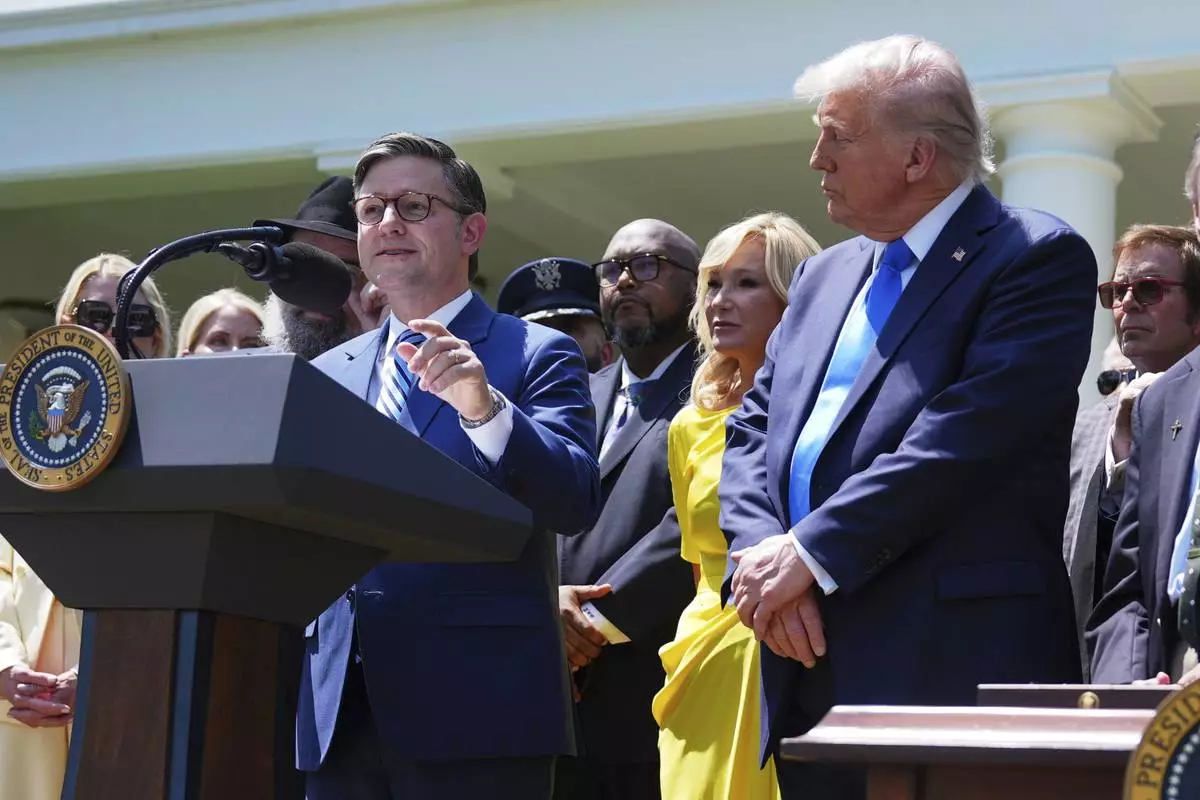
House Speaker Mike Johnson, R-La., speaks as President Donald Trump, right, listens during a National Day of Prayer event in the Rose Garden of the White House, Thursday, May 1, 2025, in Washington. (AP Photo/Evan Vucci)
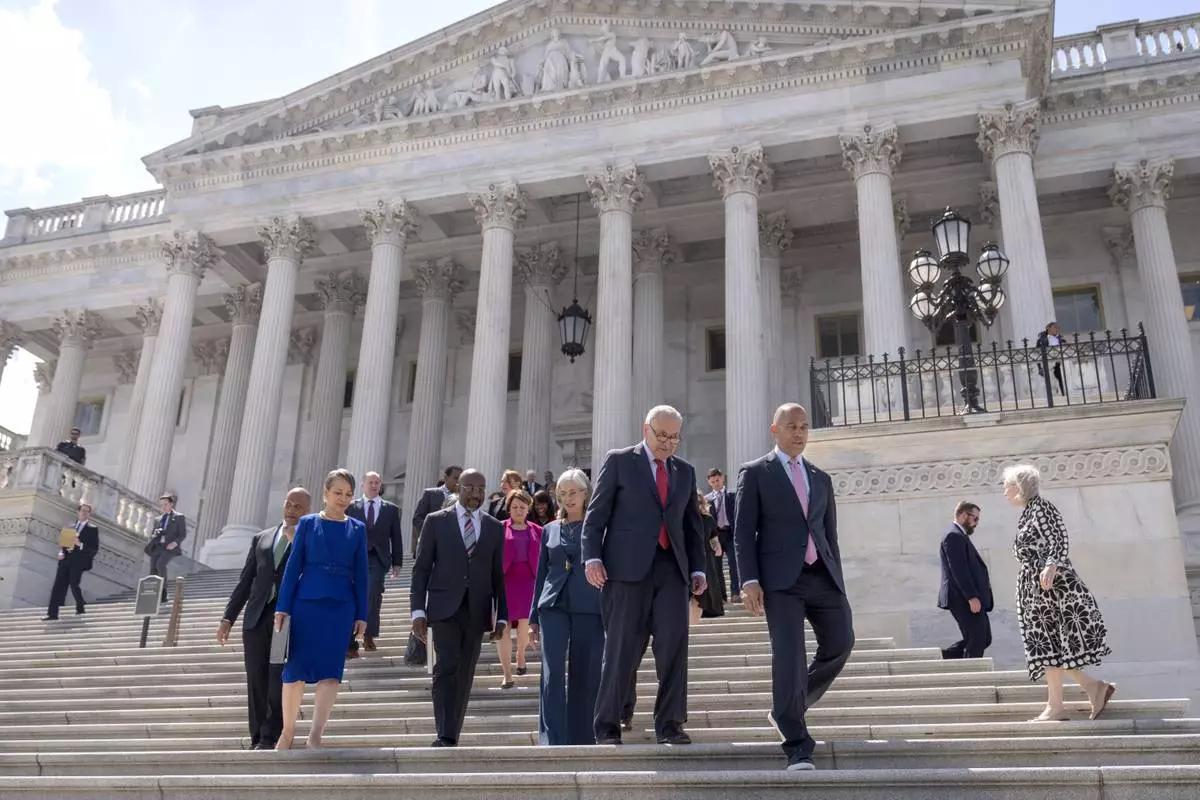
Senate Minority Leader Chuck Schumer, of N.Y., second from right, and House Minority Leader Hakeem Jeffries, of N.Y., right, arrive with other House and Senate Democrats for an event to mark 100 days of President Donald Trump's term on the steps of the Senate on Capitol Hill, Wednesday, April 30, 2025, in Washington. (AP Photo/Mark Schiefelbein)
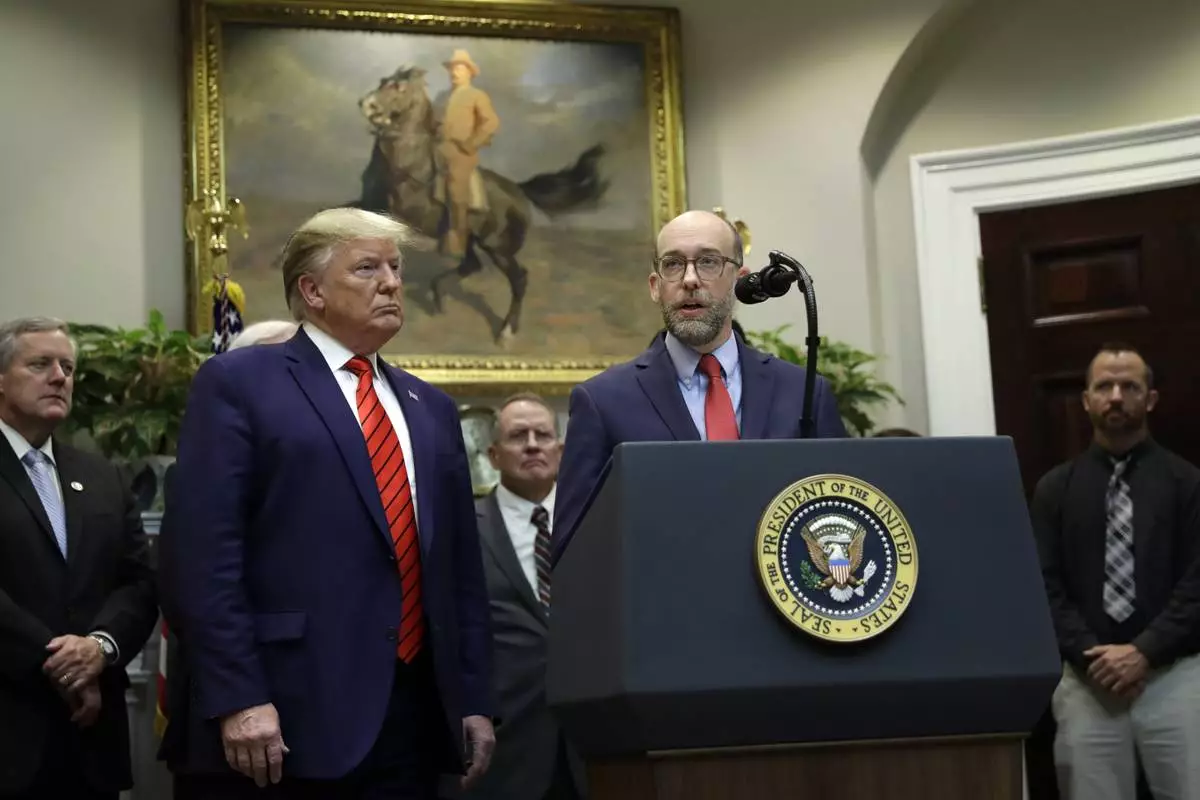
FILE - President Donald Trump listens as acting director of the Office of Management and Budget Russ Vought speaks during an event on "transparency in Federal guidance and enforcement" in the Roosevelt Room of the White House, Oct. 9, 2019, in Washington. (AP Photo/Evan Vucci, File)








